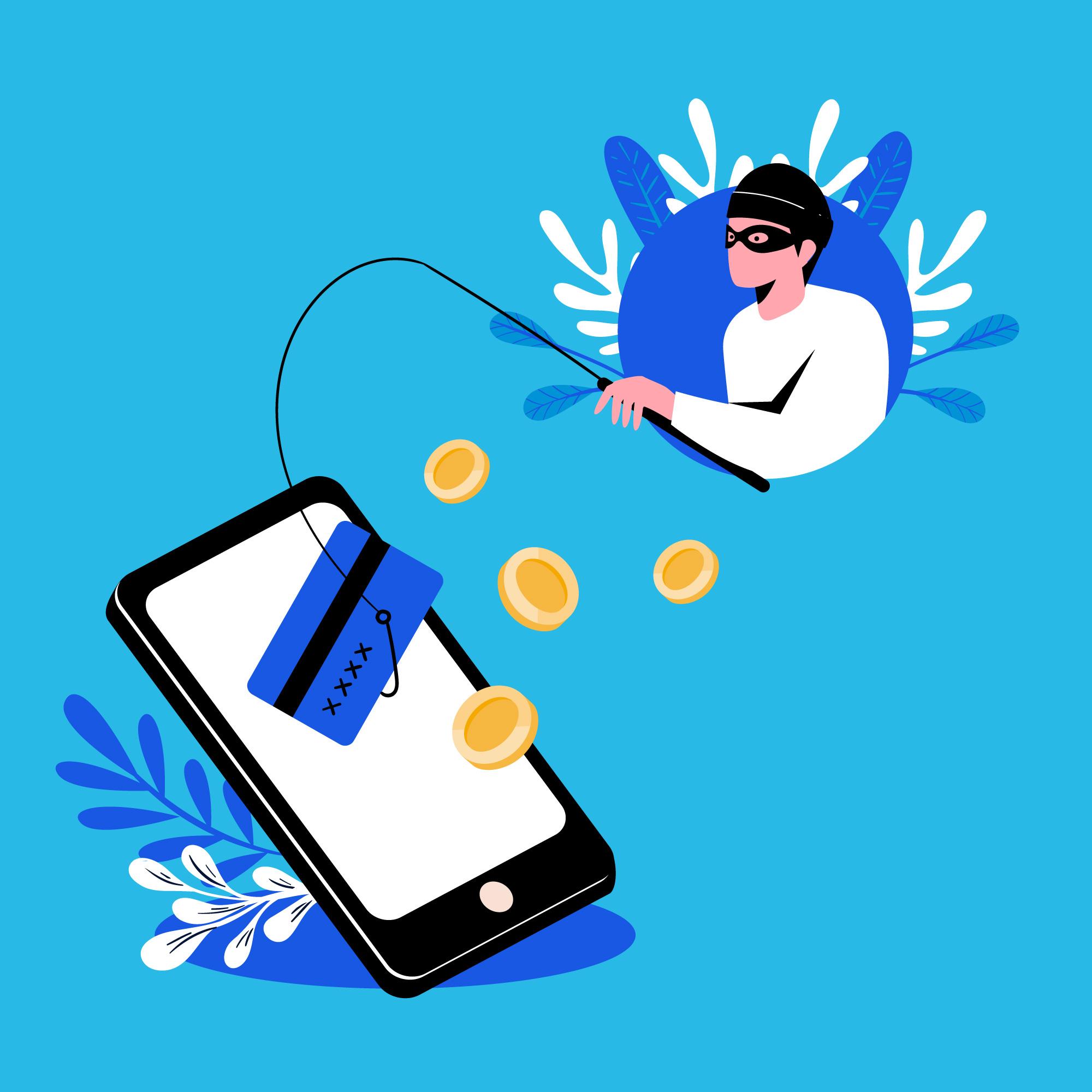- March 22, 2024
Scams on Facebook Marketplace: How to Avoid Falling Victim

Facebook Marketplace has become a popular platform for buying and selling goods within local communities. However, with its increasing popularity, scams on Facebook marketplace are also on the rise. It is crucial to be aware of these scams and take steps to protect yourself as both a buyer and a seller.
In this comprehensive guide, we will explore the most common scams on Facebook marketplace and provide you with valuable tips on how to avoid falling victim to them.
Why Scammers Target Facebook Marketplace
Facebook marketplace presents scammers with a unique opportunity to exploit unsuspecting users. Unlike other e-commerce platforms, Facebook marketplace encourages direct interaction and conversation between buyers and sellers. This creates an environment where scammers can manipulate and deceive users, often with minimal oversight. The sheer number of users on this marketplace makes it an attractive target for scammers looking to defraud individuals.
10 Common Scams on Facebook Marketplace
As scammers are becoming more and more sophisticated, it is difficult for users to distinguish between legitimate and fraudulent listings. Here are the ten most common scams on the Facebook marketplace to avoid.
1. Paying or Communicating Outside of Facebook
One prevalent scam on Facebook marketplace involves sellers asking buyers to communicate or pay outside of Facebook’s official channels. Scammers often request payment through wire transfers or payment apps like Venmo, which offer little to no buyer protection. Additionally, they can try to move the conversation away from Facebook Messenger, where their correspondence can’t be monitored. To avoid this scam, always conduct your transactions within Facebook’s platform and use the approved payment methods.
2. Mailing Items Scam
In this scam, fraudsters ask buyers to pay for an item upfront and then never send the item. They can provide fake shipping information or screenshots to create the illusion that the item has been sent. However, they have already absconded with your money. To protect yourself, it is best to purchase items that you can inspect and pick up in person. If you must receive a product by mail, ensure the seller can provide photos and videos of the item before purchase, and be cautious of paying outside of Facebook’s official channels.
3. Selling Counterfeit Items
Facebook marketplace is not immune to counterfeit goods. Some sellers list items at suspiciously low prices, enticing buyers with what seems like a great deal. However, these items are often counterfeit or pirated, and purchasing them supports illegal activities. Before making a purchase, research the typical price of the item and be cautious of sellers offering prices significantly below market value. Request multiple photos and videos of the item before making a decision.
4. Overpaying the Seller
Scammers can target sellers as well by using stolen credit cards to overpay for an item. They then claim to have made a mistake and request a partial refund. However, the original payment is declined, leaving the seller out of pocket. If you receive an overpayment, decline the charge and ask the buyer to send the correct amount. Be wary of any suspicious behavior from the buyer, as it can indicate a scam.
5. Requesting Advance Payments
Fraudsters can try to convince buyers to place a deposit or advance payment to secure an item, especially if it is in high demand. However, paying in advance leaves you vulnerable to scams, as there is no guarantee that you will receive the item as promised. Never agree to pay for an item before receiving it, and be cautious of sellers who pressure you to make a fast decision.
6. Creating Fake Accounts
Scammers often create fake Facebook accounts to trick users into purchasing nonexistent or counterfeit items. When dealing with a seller, thoroughly examine their profile for any suspicious signs. Brand-new accounts or accounts created within the past few months should raise red flags. Genuine sellers are more likely to have established profiles with a history of activity.
7. Listing Phony Rentals
Be cautious when browsing rental properties on Facebook marketplace, as not all listings are legitimate. Scammers can use fake or misleading photos, change rental prices after commitment, or even advertise rentals owned by other individuals. Always insist on touring the property in person and verifying its availability before submitting an application or transferring money. Avoid immediate payments or any high-pressure tactics from the seller.
8. Selling Items That Don’t Work
One common scam involves sellers listing items that don’t work as described. This is especially prevalent with electronics or tech devices. To protect yourself, insist on testing the item before completing the transaction. If the seller refuses or rushes you into making a decision, it can indicate a scam.
9. Advertising Fake Giveaways
Scammers may post links to fake giveaways on their profiles, enticing users to click on them. These giveaways are often designed to trick users into downloading malware or providing sensitive information. Be cautious of any giveaways that seem too good to be true and avoid clicking on suspicious links. Report any phony accounts to Facebook.
10. Requiring Car Deposits
When purchasing a vehicle on Facebook marketplace, be wary of sellers requesting deposits. Scammers can ask for a small fee to hold the car but then provide a fake address when it’s time to meet up. Always do your research and check trusted sources for pricing information. Request a vehicle history report and schedule a car inspection before making any payments.
How to Protect Yourself on Facebook Marketplace
Now that you are aware of the common scams on Facebook marketplace, here are some essential tips to protect yourself as both a buyer and a seller:
- Conduct transactions within Facebook’s platform and use the approved payment methods.
- Inspect and pick up items in person whenever possible. If receiving items by mail, ensure the seller can provide thorough documentation and use Facebook’s approved payment methods.
- Research the typical prices of items before making a purchase. Be cautious of deals that seem too good to be true.
- Decline overpayments and ask the buyer to send the correct amount. Report any suspicious behavior from buyers.
- Never agree to pay for an item before receiving it. Be cautious of sellers who pressure you to make immediate payments or deposits.
- Scrutinize seller profiles for any signs of suspicious activity. Avoid dealing with brand-new accounts or accounts created within a short timeframe.
- Tour rental properties in person and verify their availability before submitting applications or making payments.
- Test items before completing the transaction, especially electronics or tech devices.
- Avoid participating in giveaways that seem too good to be true. Report any phony accounts to Facebook.
- Be cautious of sellers requesting car deposits. Do thorough research, check pricing information, and request a vehicle history report before making any payments.
By following these tips and staying vigilant, you can protect yourself from scams on Facebook marketplace and have a positive buying or selling experience.
Conclusion
Scams on Facebook marketplace are becoming increasingly common, but with the right knowledge and precautions, you can avoid falling victim to these fraudulent activities. Familiarize yourself with the common scams outlined in this guide and implement the recommended strategies to protect yourself as both a buyer and a seller. By staying informed and cautious, you can enjoy the benefits of Facebook Marketplace without the risk of scams.
Frequently Asked Questions (FAQs)
How do you know if a buyer is scamming you?
There are a few signs that can indicate a buyer is scamming you, such as asking you to send the item before payment, offering to pay more than the listed price, or requesting your personal information. It’s important to be cautious and trust your instincts when dealing with buyers and to only proceed with the transaction if you feel comfortable.
Can I get my money back if I get scammed on Facebook Marketplace?
If you get scammed on the Facebook marketplace, you can report the seller to Facebook and try to get a refund through the platform’s resolution center. You can also file a dispute with your payment provider or contact your local law enforcement agency if necessary.
What can a Facebook Marketplace scammer do with my address?
If a Facebook marketplace scammer has your address, they can potentially use it for identity theft or to commit other fraudulent activities or blackmailing. It’s important to be cautious when sharing your personal information with strangers online and to only provide it if necessary.
What is the safest way to receive payment on Facebook Marketplace?
The safest way to receive payment on the Facebook marketplace is to use the platform’s built-in payment system, which allows buyers to pay directly through Facebook. You can also use a third-party payment provider such as PayPal or Venmo, but be sure to follow their guidelines for safe transactions.
Share it with your friends!
Explore
More
Ready to get started?
Harness the unmatched capabilities of ActionSprout to transform your Facebook strategy. Elevate engagement, captivate your audience, and achieve unparalleled results. Don’t wait – seize the opportunity.

